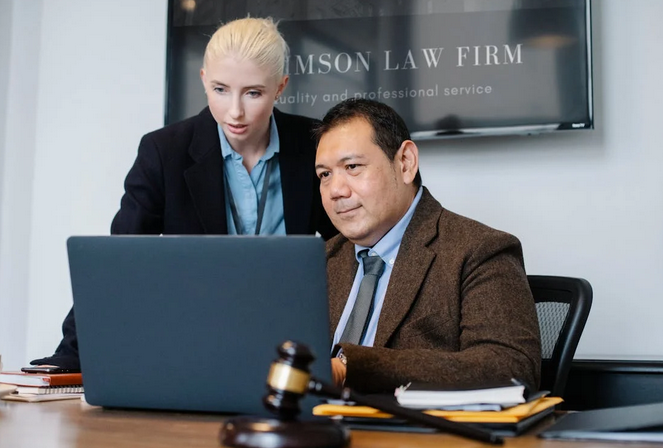At first glance, crossword puzzles and law practice may seem like two completely unrelated activities, one a leisure pastime, the other a demanding profession. But dig a little deeper, and you’ll find that both share a common thread: they require keen mental agility, problem-solving skills, and a passion for precision. Whether you’re filling in a taco bell’s slogan crossword clue puzzle grid or preparing a legal case, you’re using many of the same cognitive muscles. In this article, we’ll explore the surprising ways crossword puzzles reflect and enhance the skills needed for success in law practice.
Problem-Solving: Thinking From Every Angle

In crossword puzzles, solvers are presented with a series of clues that must be unraveled, often using wordplay or lateral thinking. This mental exercise is strikingly similar to what lawyers do when they approach a legal case. Every legal issue is like a puzzle, one that may not have an obvious solution. Lawyers must consider every angle, think creatively, and use logical reasoning to piece together the best possible answer. For example, just as a crossword clue may have multiple interpretations, legal arguments can be approached from different perspectives. A skilled lawyer must evaluate each possibility, choosing the best course of action based on the facts and legal precedents at hand. Both crossword solvers and legal advocates develop a knack for seeing the big picture while also paying attention to the smallest of details.
Attention to Detail: Looking for Precision
Crossword enthusiasts know the importance of precision. One wrong letter can throw off an entire section of the puzzle, just as one small oversight in a legal case can lead to significant consequences. Lawyers, much like puzzle solvers, are required to focus on every detail, ensuring that no piece of information is overlooked. In legal practice, attention to detail is essential for drafting contracts, reviewing evidence, and constructing legal arguments. The ability to scrutinize every word and understand its meaning in context can make the difference between winning and losing a case. Likewise, crossword solvers must carefully interpret clues, understand the subtleties of language, and ensure that every answer fits seamlessly into the overall grid.
Pattern Recognition: Spotting Connections
Crossword puzzles often rely on the solver’s ability to recognize patterns, whether by identifying common letter combinations or spotting familiar word structures. This skill is crucial for lawyers as well. In legal practice, attorneys must identify patterns within case law, legal statutes, and past rulings to build persuasive arguments. A lawyer’s ability to spot patterns in complex information can help them anticipate opposing arguments, predict outcomes, and develop innovative strategies. Just as a crossword enthusiast can recognize a theme running through a puzzle, a lawyer can detect underlying connections in legal cases that may not be immediately obvious.

Language Mastery: Playing Words
Crosswords are a game of language, often involving clever wordplay, puns, and double meanings. Legal professionals, too, are masters of language. They must communicate effectively, both in writing and in oral arguments, using precise and persuasive language to advocate for their clients. In courtrooms, legal briefs, and negotiations, words hold immense power. Lawyers must be able to articulate their points clearly while also understanding the nuances of legal terminology.
Memory and Recall: Accessing a Wealth of Knowledge
Successful crossword solvers often have impressive recall abilities, quickly accessing a wealth of knowledge about trivia, history, pop culture, and language. Similarly, lawyers must have excellent memory and recall skills as they draw upon a vast body of legal knowledge, precedents, and regulations in their day-to-day work. Lawyers frequently reference past cases, legal principles, and statutes from memory. Just as a crossword solver can instantly think of a five-letter word starting with “P,” a lawyer can recall a landmark case that supports their argument. Both activities require strong mental recall, and exercising the brain through activities like crosswords can help sharpen this skill over time.
Critical Thinking: Evaluating Multiple Possibilities

In both crossword puzzles and legal practice, there’s often more than one way to approach a problem. Solvers must use critical thinking to evaluate which potential answers fit the given clues, discarding the incorrect ones along the way. Similarly, lawyers must analyze multiple possibilities when building a case, weighing the strengths and weaknesses of different arguments. Both activities require analytical thinking, the ability to sift through evidence, and the skill to arrive at a well-reasoned solution. In law, critical thinking is essential for navigating complex legal systems, while in crosswords, it’s key to solving even the trickiest of puzzles.
It turns out that crossword puzzles are more than just a fun way to pass the time. They’re also a powerful tool for honing the very cognitive skills that lawyers use in their practice. From problem-solving and attention to detail to language mastery and critical thinking, crosswords provide a mental workout that keeps the legal mind sharp and agile.

